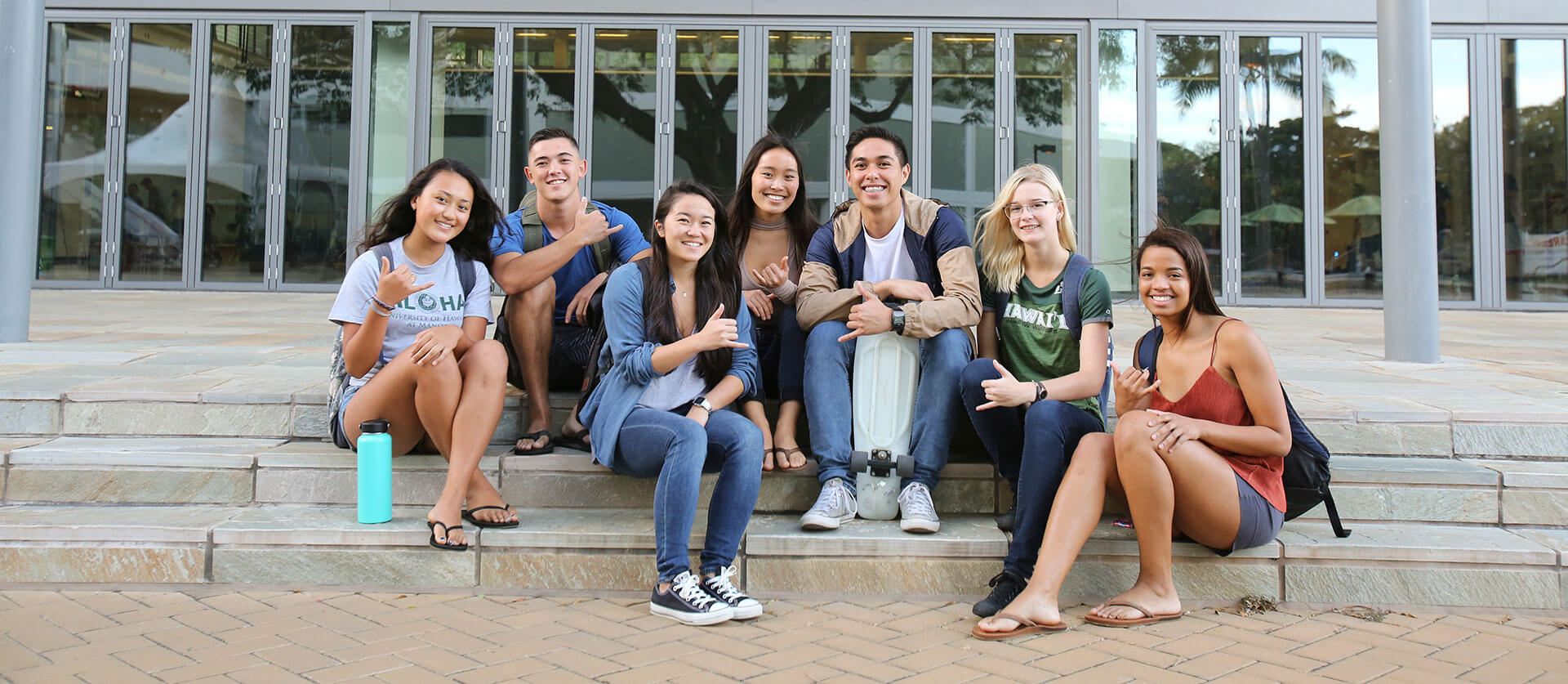Purpose
These guidelines are intended to ensure that any and all social media interactions on behalf of the University of Hawaiʻi at Mānoa represent the university’s best interests and to assist university employees in effective online communication.
These guidelines shall apply to all units within the University of Hawaiʻi at Mānoa, hereinafter called UH Mānoa.
These guidelines are designed to help employees leverage the power of social media and identify “best practices” when posting material online. Employees and students are subject to the same laws, professional expectations, and guidelines when interacting online as when interacting in-person with students, parents, alumni, donors, and the media. These guidelines are broad in nature. Social media is evolving and no policy or procedure can adequately address all the particular situations and circumstances that may arise.
These guidelines only apply to social media accounts created to represent UH Mānoa groups, departments, programs, entities, etc., and do not apply to private individual accounts.
Related University Policies
- University of Hawaiʻi Executive Policy E2.210, Use and Management of Information Technology Resources
- University of Hawaiʻi System Executive Policy E2.213 System and Campus-Wide Electronic Channels for Communicating with Students
- University of Hawaiʻi Executive Policy E2.215, UH Institutional Data Governance Policy
Responsibilities
As communicators for UH Mānoa, we are all responsible for working towards the university’s goals and communicating key messages on a continual basis. To maintain UH Mānoa’s reputation and further UH Mānoa’s mission, communicators across campus must work together to promote the university and build relationships with the various internal and external stakeholders.
Guidelines
- Use of social media must comply with all applicable University policies, guidelines, and regulations including, without limitation, RP 9.205 (pdf), EP 2.210 (pdf), and the Hawaii Ethics Code (pdf), among others.
- Users must not post confidential information about UH Mānoa, its faculty, staff, or students.
- All social media accounts created on behalf of UH Mānoa must be linked to department’s administrative or resource email account, never a personal email account. More than one employee must have administrative access to the account.
- In the event that a site requires an individual account, a unique account should be created and utilized.
- No employee or student should be required to use a private, personal account for a public university account.
- If an established account is presently linked to an individual’s account, that person relinquishes all rights to the account upon graduation, termination, voluntary cessation of employment, or assignment to another job.
- Accounts created on behalf of UH Mānoa are the sole property of the university; creators and administrators have no ownership rights whatsoever.
- Do not hide your identity. Clearly state your role and goals when posting on behalf of UH Mānoa.
- UH Mānoa employees and representatives who post on behalf of UH Mānoa must be mindful at all times of protecting the university’s reputation and promoting the university’s educational mission.
- Social media is a public forum; if online conversations become hostile, employees and representatives must remain respectful, professional, and conscious of the university’s primary role as an educational institution.
- If a question or comment is directed to one of the university’s social media sites or pages, strive to respond in a timely and appropriate manner. Depending on the topic, supervisors should determine who will be issuing the response.
- Be mindful that anything posted online is public. This means that your content may be viewed by anyone, anywhere in the world, and material can be copied and forwarded.
- Be familiar with the terms of service and policies of the sites and networks you have selected to utilize and ensure that you follow them. Visit UH EP 8.200 Policy on Contracts and Signing Authority to learn more about standard contractual provisions that should be University contracts and the priority contracts that require additional scrutiny and review.
- Keep personal views separate from university posts. Ensure the contents of your posts will further the university’s mission and reflect positively on your department and the university as a whole.
- Be wary of posting to links to another website which could imply the university’s endorsement of that linked site.
- Do not publish any information that you have learned through your job, such as closings, cancellations, emergencies, or other non-public information until it has been officially announced by the Communication’s Office or other authorized persons.
- Do not cite or reference colleagues or co-workers without their approval.

